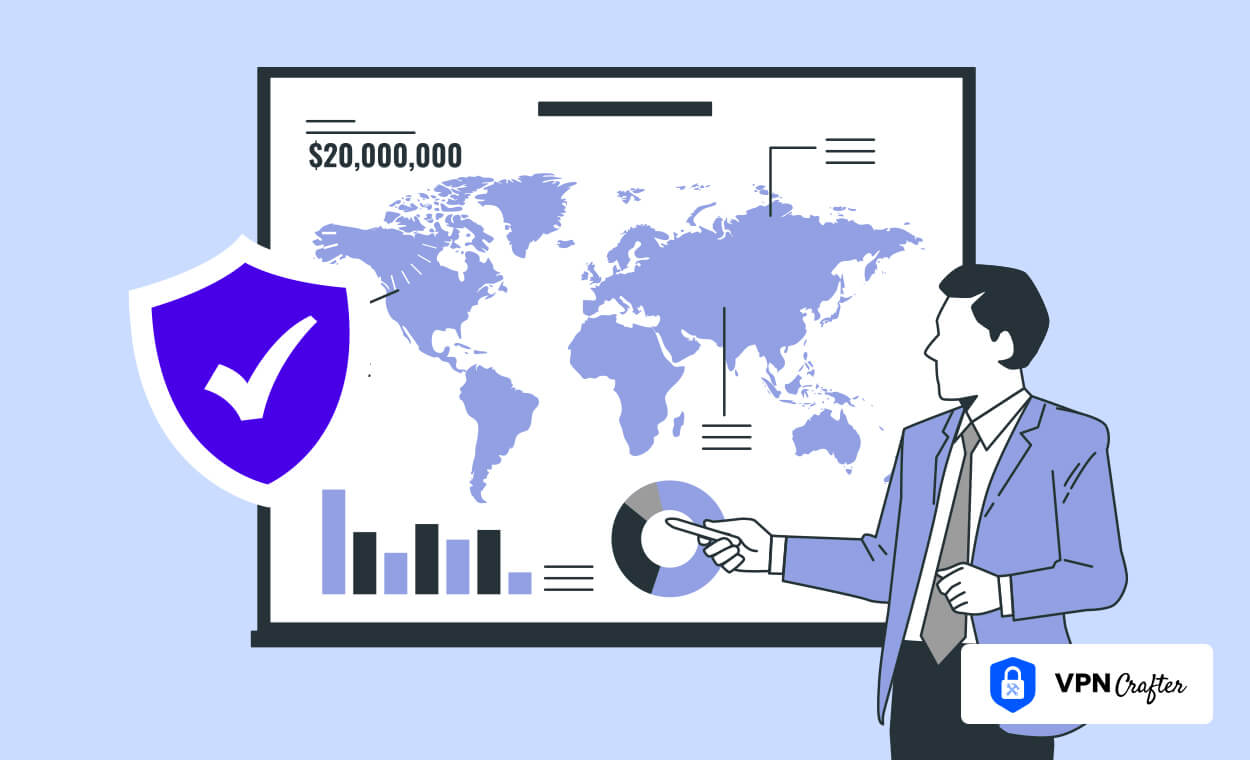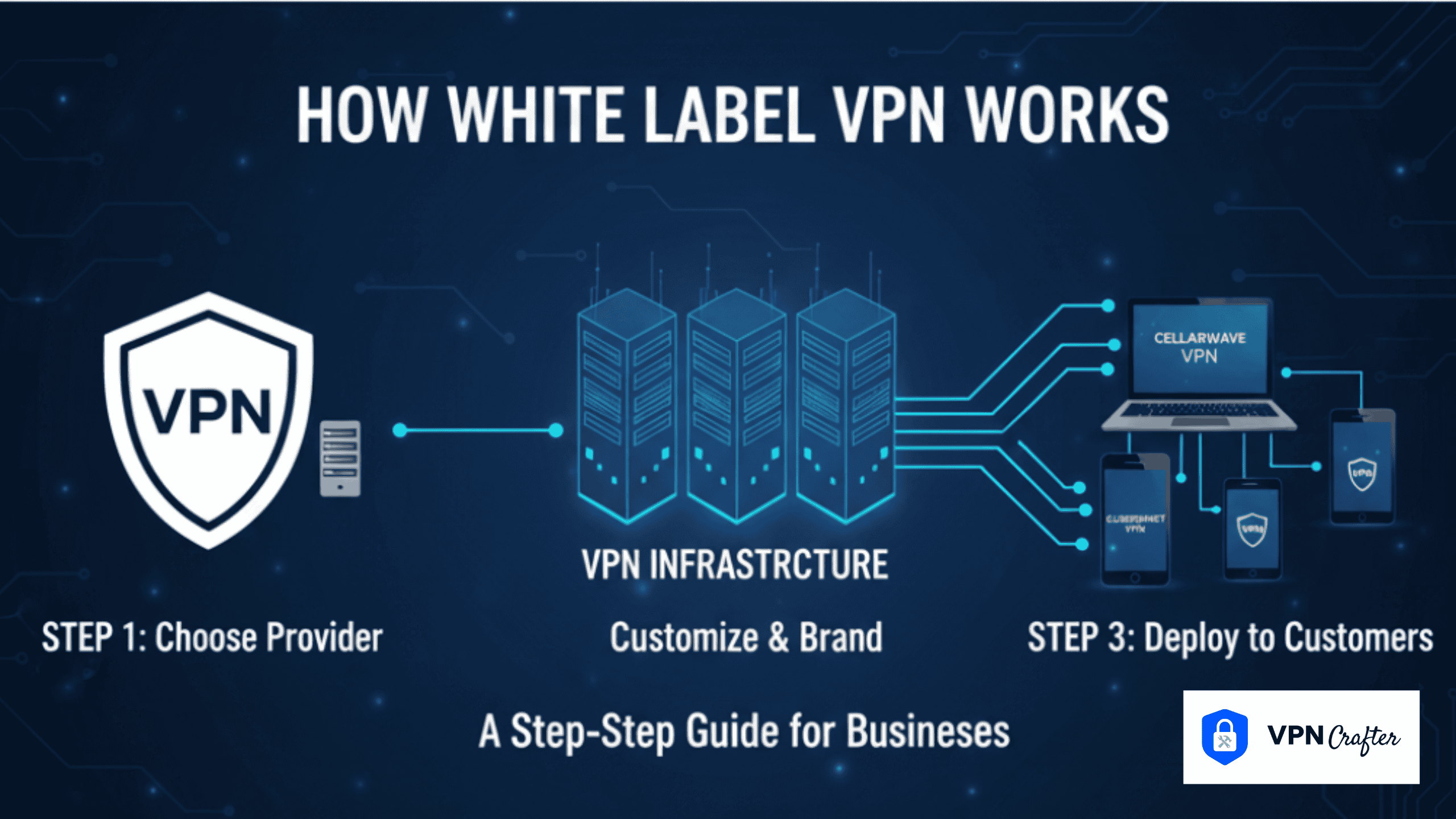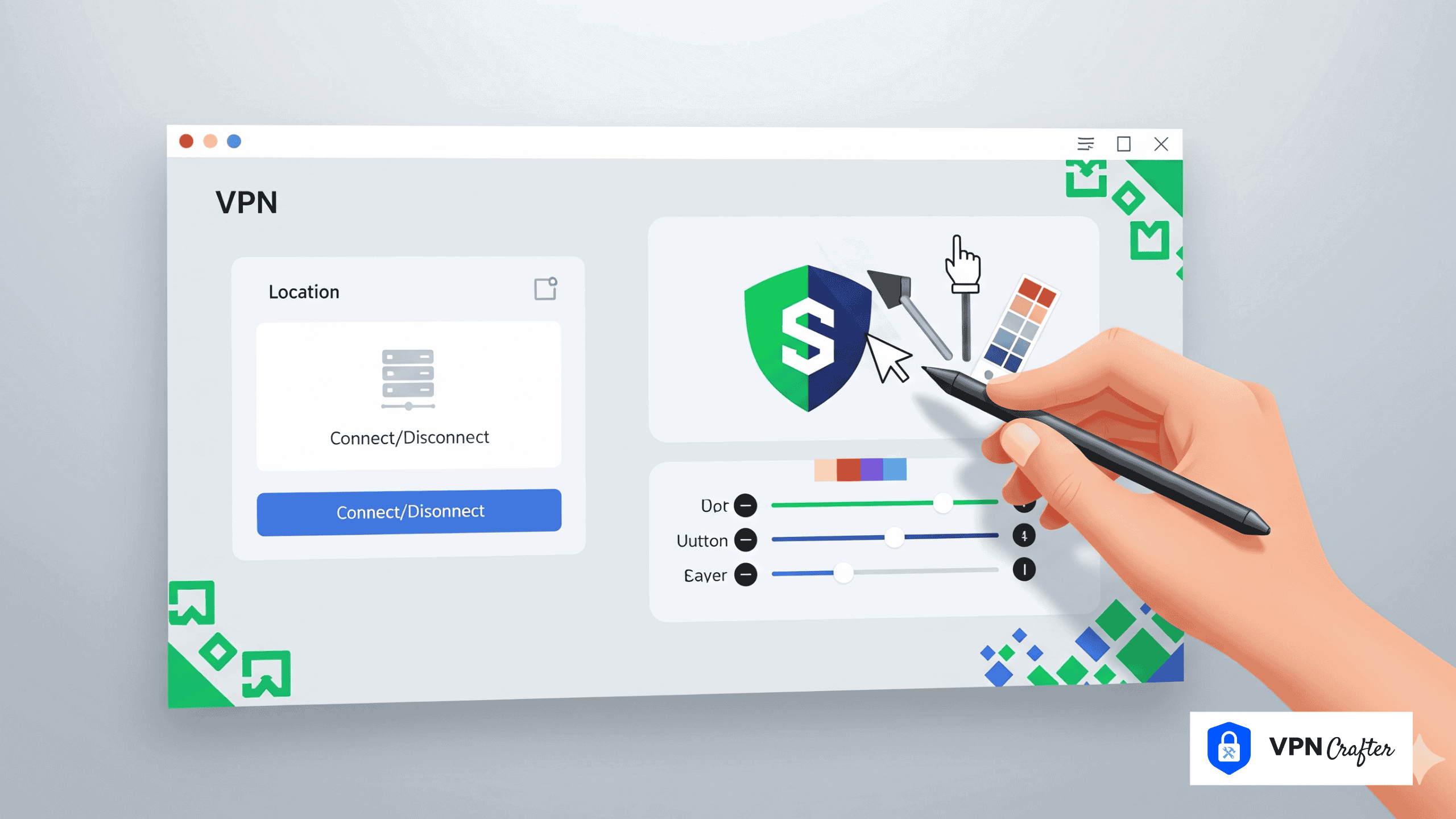Starting a VPN reseller business sounds exciting, but it’s not always easy. Many people rush in without thinking about which country is the best place to launch their business. This can lead to problems like strict internet rules, tough business laws, or slow market growth.
If you choose the wrong country, your business might struggle with legal issues, high costs, or low demand. Even with a great service, growing your business can become difficult and stressful in the wrong location.
That’s why it’s so important to know where to start. In this blog post, we’ll show you the best countries to launch a VPN reseller business, so you can grow safely, easily, and with fewer headaches.
So, without further ado, let’s dig deeper.
What to Consider Before Choosing a Country
Launching a VPN reseller business globally requires more than just identifying market potential. Choosing the right country demands a strategic understanding of legal, technical, and economic factors. Here’s what you need to evaluate before making your move.
Regulatory environment
The first and most critical consideration is the legal stance on VPNs in your target country. In some nations, VPNs are either banned or tightly regulated. Operating in such areas can expose your business to legal risks, fines, or even shutdowns. On the other hand, countries that uphold digital rights and privacy are more suitable for VPN businesses.
You must also understand data retention laws. Some countries require businesses to store user activity logs, which directly contradicts the core principle of VPN services. Check whether reselling VPNs requires specific licenses or local compliance procedures to avoid unexpected legal complications.
Market demand and internet penetration
High internet usage combined with growing privacy concerns creates fertile ground for VPN services. Countries with a large population of active internet users, remote workers, gamers, or streamers are typically more open to VPN adoption. In addition, markets experiencing increased censorship or government surveillance tend to see a surge in VPN usage.
Analyzing the digital behavior of your target audience will help you determine whether the market is mature enough for your VPN offering or if you’ll need to invest more in awareness and education.
Level of competition
While high competition often confirms a healthy market, it also makes customer acquisition more difficult and expensive. In countries where global VPN giants already dominate, entering the space without a clear differentiator could be challenging.
However, underserved markets with fewer players offer the opportunity to stand out with localized marketing, customized pricing, or region-specific support. Understanding how many providers operate in your chosen market and how they position themselves is essential for carving out your niche.
Payment infrastructure and currency support
Having a great product means little if customers can’t pay you easily. The availability of reliable, localized payment systems is a major factor in smooth business operations. Each region has its preferred payment methods—some favor credit cards, while others rely heavily on mobile wallets or bank transfers.
You should also consider currency exchange dynamics and whether your billing platform can accept local currencies without adding friction. The easier it is for customers to pay, the higher your conversion rates will be.
Business and tax environment
Finally, the overall ease of doing business in a country can either support or hinder your success. Startup-friendly countries offer simplified tax structures, easier company registration, and lower operational barriers. Look into corporate tax rates, digital business regulations, and data protection laws. Choosing a country with supportive infrastructure and investor-friendly policies will not only protect your business but also allow it to scale smoothly.
Top 5 Best Countries to Launch a VPN Reseller Business
Choosing the right country can make or break your VPN reseller business. Here are the top five countries where the market potential, legal climate, and digital infrastructure align perfectly for success.
1. United States
The U.S. remains one of the most lucrative markets for VPN services. With widespread concerns over surveillance, data breaches, and online privacy, VPN usage has become mainstream among both individuals and businesses. The country has a mature digital economy, high internet penetration, and a large base of privacy-conscious users.
Although the VPN market is competitive, the demand is strong enough to support new players—especially those who offer niche features, better pricing, or enhanced customer service. Payment gateways, digital advertising platforms, and business infrastructure are all advanced and accessible.
2. Germany
Germany stands out for its strict privacy culture and alignment with the EU’s GDPR framework. Citizens are highly aware of data protection, making VPN services appealing across various age groups and professions. Germany’s digital infrastructure is robust, and internet usage is high, especially in urban areas.
The legal environment supports the use of VPNs, and resellers who offer high-quality, GDPR-compliant services can build strong trust. While language localization and data transparency are essential, the country offers excellent long-term potential for growth.
3. India
India represents a rapidly growing market with one of the world’s largest populations of internet users. The need for VPNs is increasing due to rising censorship, blocked websites, and growing digital literacy. Pricing sensitivity is a factor, so affordable subscription plans and regional payment options (like UPI and mobile wallets) are critical.
Although there have been shifts in VPN regulations, especially regarding data retention, resellers who adapt quickly to policy changes and maintain transparency can still thrive. The sheer volume of potential users makes India an attractive entry point for scalable VPN reselling.
4. United Arab Emirates
The UAE presents a unique combination of opportunity and challenge. Due to strict content restrictions and VoIP bans, many residents especially expats rely heavily on VPNs to access essential services like WhatsApp, Skype, or uncensored news platforms. This high demand makes the UAE a profitable location for VPN reselling.
However, it’s vital to stay compliant with local laws, as the use of VPNs for illegal activities is criminalized. Targeting the right audience and maintaining legal clarity can help resellers successfully navigate this regulated yet rewarding market.
5. Brazil
Brazil is an emerging digital economy with increasing awareness of online privacy and internet freedom. As one of the most connected nations in South America, Brazil’s population regularly uses VPNs for gaming, streaming international content, and safeguarding personal data.
The competitive landscape is less saturated compared to North America and Europe, giving room for growth. Supporting popular local payment methods like Boleto Bancário and Pix is essential. With proactive marketing and localization efforts, VPN resellers can tap into Brazil’s growing demand and rising middle class.
Where NOT to Launch a VPN Reseller Business
While VPNs are in high demand globally, not every country offers a safe or profitable environment to operate in. Some regions impose heavy restrictions, surveillance, or outright bans that make launching a VPN reseller business legally risky or commercially unviable.
i. China
China has some of the strictest internet regulations in the world under its “Great Firewall.” Only government-approved VPNs are allowed, and foreign or unauthorized VPN providers often face blacklisting, blocking, or legal action. Operating in China poses severe legal risks and requires compliance with tight surveillance standards that go against the core principles of VPNs.
ii. Russia
Russia also maintains rigid control over internet access and data flow. VPN providers are required to register with the government and comply with censorship requests, including blocking access to banned websites. Non-compliance can result in service bans or fines, making it a dangerous market for independent or privacy-focused VPN resellers.
iii. Iran
In Iran, VPN usage is common among citizens to bypass censorship, but the government classifies unauthorized VPN activity as illegal. This duality creates a hostile and unpredictable environment for resellers. The constant threat of sanctions and political instability adds to the difficulty of doing legitimate business in the country.
iv. North Korea
North Korea’s internet is tightly restricted to a small elite, with no access to the global web for the general population. There is virtually no commercial opportunity for VPNs here, and attempting to launch a VPN business would be both futile and potentially dangerous.
v. Turkey
Turkey has increasingly restricted digital freedoms in recent years, with crackdowns on VPNs during political unrest or elections. While not entirely banned, the country imposes blocks on VPN services during sensitive periods, creating inconsistency and operational headaches for resellers.
Final Thoughts
Launching a VPN reseller business can be highly profitable if you choose the right country to start. Markets like the United States, Germany, India, the UAE, and Brazil each offer a unique blend of demand, digital maturity, and growth potential. These countries not only embrace VPN usage but also provide the infrastructure and legal environment needed to operate securely and scale effectively.
Ultimately, your success depends on understanding local user behavior, complying with regulations, and offering tailored solutions. Start where the opportunity aligns with your strengths and expand strategically into new markets. With the right foundation, your VPN reseller business can thrive in today’s privacy-driven digital world.




